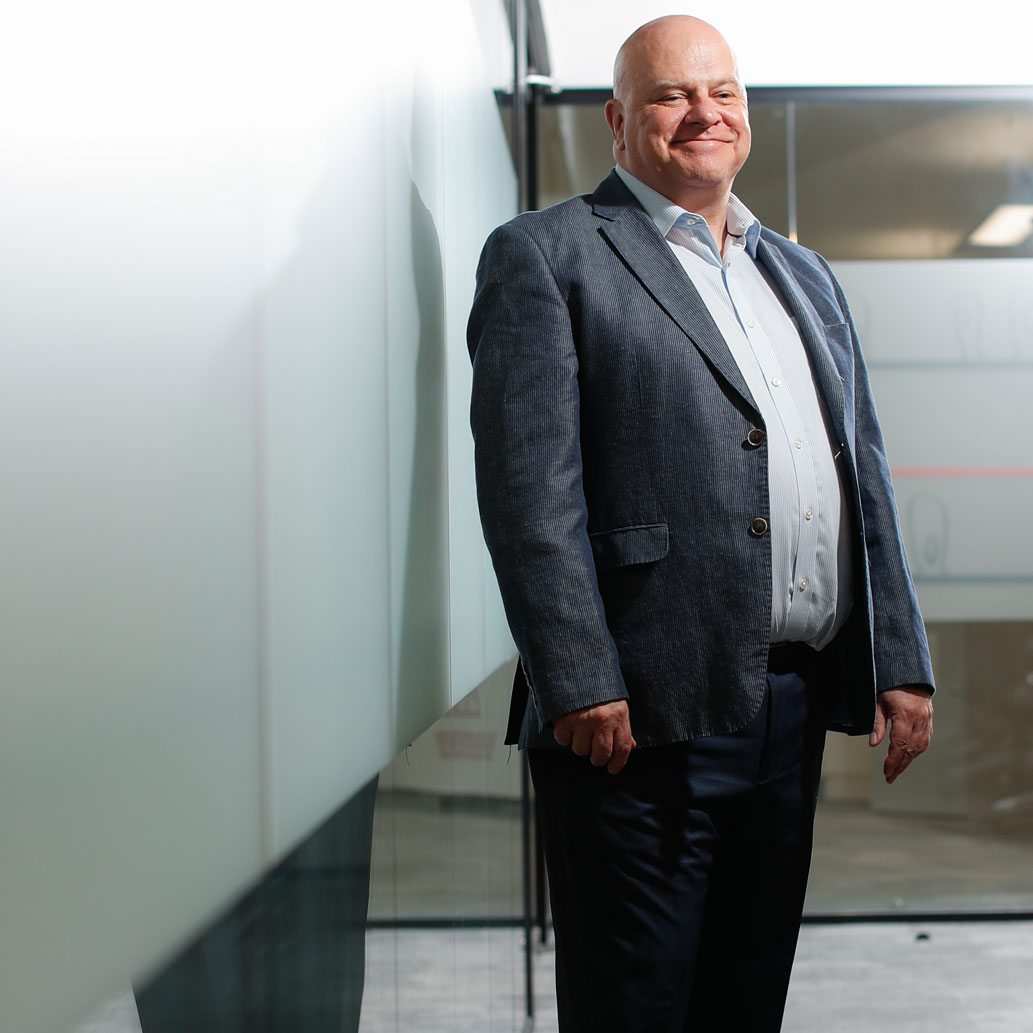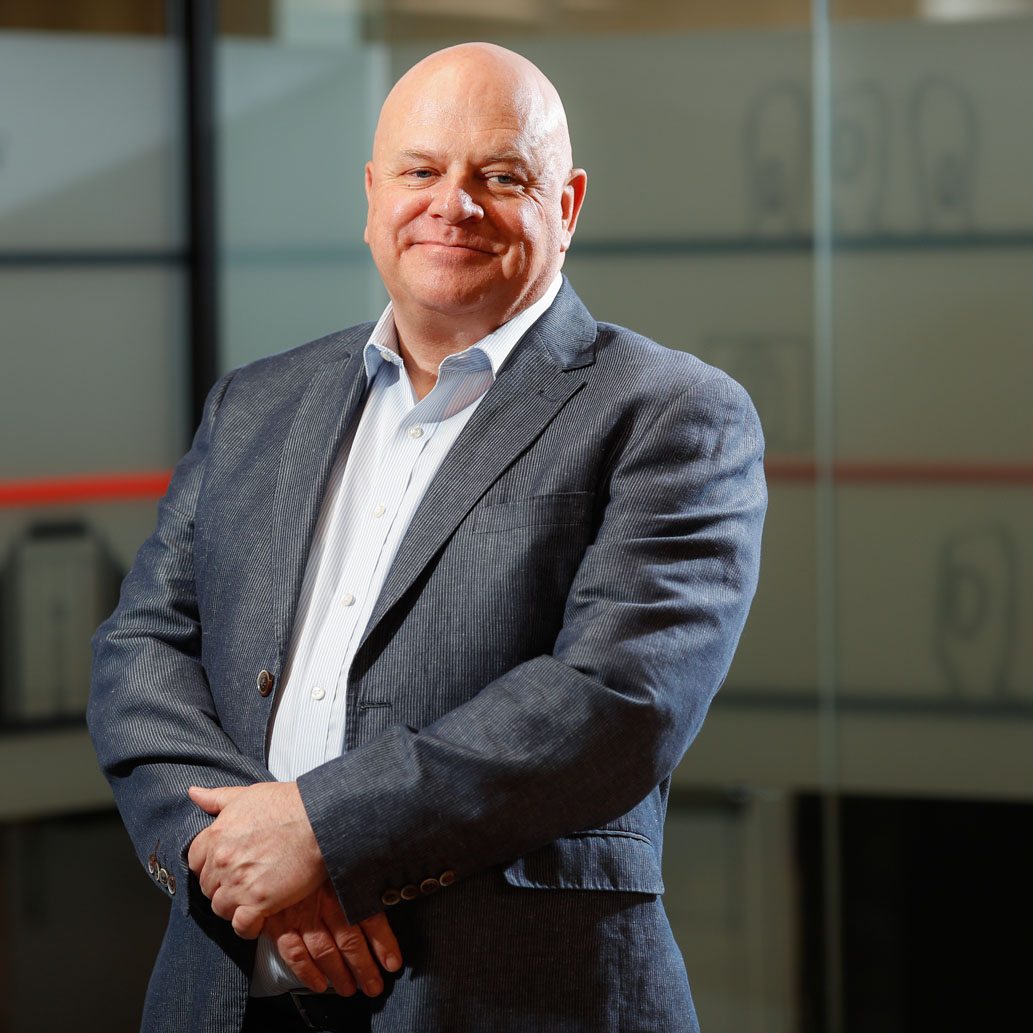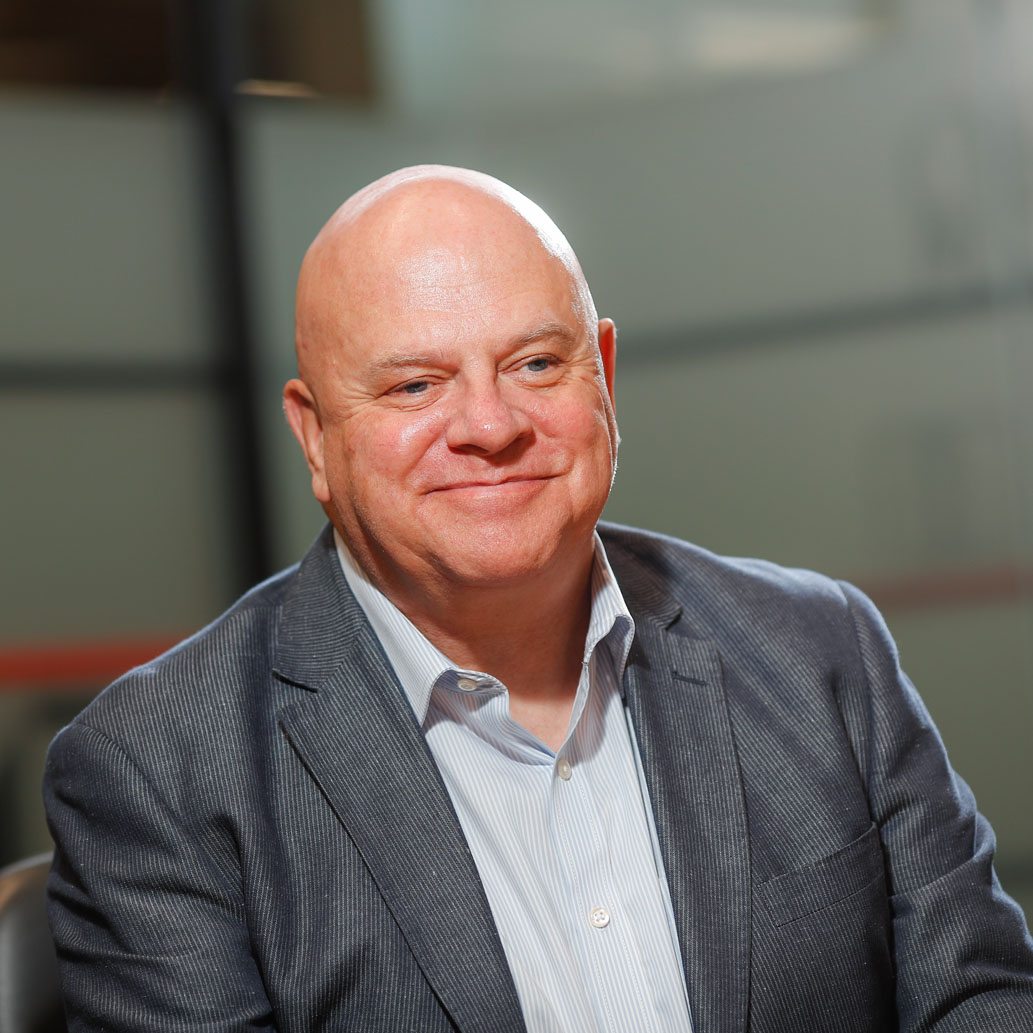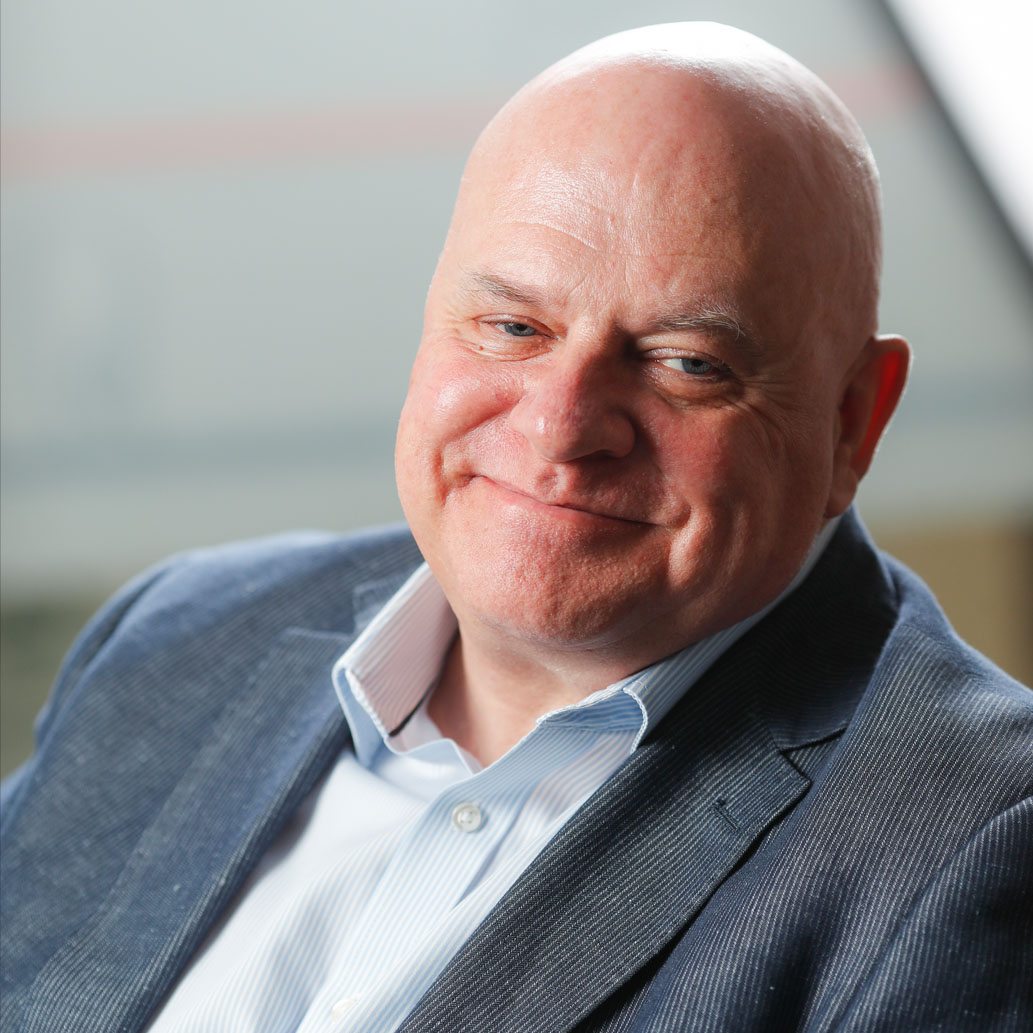Martin, tell us about your early life and how you decided on a career in HR?
I decided early on that I wanted a career in HR, which influenced my degree choice, Behavioural Science. Following that, my first proper job in HR was in Australia at the University of New South Wales in Sydney, living by the beach in Bondi. Eventually I grew tired of the sunshine and returned to the UK and studied full-time for a Master’s degree in HR Management at Cardiff University, and I graduated and joined a company called IAL, which was a subsidiary of British Airways. The business managed airports around the world, and particularly the Middle-East. I was initially involved in supporting UK union pay negotiations, and I was also Leave Relief HR Manager across the Middle-East airports going to each for a few weeks, while the expat HR manager was on leave. The company was growing rapidly and it was diversifying from aviation into hospital management, which presented the opportunity to move into the health sector, running hospitals in the Middle-East. I was promoted to a more senior role, recruiting vast numbers of people for all departments of the newly-built hospitals, and this exposed me to a wider scope of HR and it was from here that my career started to really progress. Bigger jobs with more responsibility followed, and I became an HR manager with a business focus. BA was looking to sell the hospital business, because they needed the money, and this wasn’t core business, and so it eventually became part of Serco.

Tell us about your next move.
Although I would come back to Serco later on in my career, I left and joined ICL, and initially the role was using my international experience in Eastern Europe, the Middle-East and Africa – based out of London, but travelling about 90 percent of the time. I was spending a lot of time in Eastern Europe, which was still under communist rule, so it was very unusual to work there in HR at that time. ICL’s business was computers and services, and the profit driver was increasingly in services, not boxes – customer training, consultancy, and maintenance contracts – so it took me back to the services side of business. I was promoted to be HR Manager of Customer Training Services, and that was the first role where I had a reporting line directly to a managing director, as opposed to an HR Director. Again, much of the role was recruitment and retaining scarce technology skills. Then out of the blue, I was headhunted for what would become my next role. I wasn’t sure that I should change jobs so quickly, but in the end, the massive increase in pay was an offer I couldn’t refuse, and I thought it would be good to have some experience in a US company. The organisation in question was the Dow Chemical Company, so once again, a new sector. It was a very lean business, cost conscious, and it had a universal way of operating around the world, whereas the majority of companies vary the way they operate to match the location. Dow epitomised the centrally-directed business, and I learnt a good deal about running an efficient organisation with great process and effective organisation design, which has been very useful ever since. Then, as now, science-based skills were scarce and so you have to establish the business in areas where there is that available skillset, or where it can be developed, by building partnerships.

From what you have said so far, at every stage your ambition has gone before your experience; changes in sector, the travel - that takes a certain mind-set to succeed and to not be overawed by the responsibilities.
Yes, and I think it comes down to emotional intelligence, working internationally and responding to people appropriately and adapting your style to different situations and cultures. My role at Dow was very commercially-focused which suited me well, and after a few years, my boss transferred to the US HQ and I took over his role. This was a much larger job and included responsibilities in manufacturing so a big promotion and step change in my career. I was part of the executive board for the first time; UK and Ireland then later Nordics were added. Like any career progression it’s about learning on the go from the people that surround you, and I’ve always been one for observing and listening in order to learn from others, building strengths and capabilities by experiencing different environments.

Why did you leave and explain the next stage of your career path?
The next stage for me was the hardest career choice I have ever had to make so far. Dow had offered me a Europewide senior HR role based in Switzerland as an expatriate, but at the same time I was approached by a head hunter for a role at Ericsson, and this was at the start of the boom in telecoms, so I found that very appealing. I accepted the offer from Ericsson which was my first HR Director role, and the first thing that hit me was the incredible pace of business development and the necessity to stay ahead of change – very different to the world of commodity chemicals, which is very dependent on the economic cycle. I had always been interested in technology, but the pace was even faster than I had anticipated. It was right at the point when the internet and mobile telecoms looked likely to change all our lives massively and in so many different ways. I was promoted rapidly to bigger international roles including Vice President Resource Management Europe, Middle-East, and Africa, which took me beyond HR into business management roles with P&L responsibility. Unlike Dow, Ericsson adapted to localised cultures and sensitivities and the result was, of course, greater decentralisation.
It was an amazing era to be involved in technology. At one point, I was working with the people who invented Bluetooth and, in another part of the business, Ericsson was developing the first mobile apps, and of course huge growth was anticipated and being planned for. Bearing in mind Ericsson was a 100-year-old Swedish company, and so the focus was two-fold; to understand where technology was leading the business, but also to try and be agile enough to take on aggressive and ambitious start-up companies. It says something that Ericsson is one of the few survivors from that time – most of the competitors went bust or were taken over. Looking back, most of what we thought would be the future has turned out to be true particularly the use of mobile data. The problem was, it all cost much more and took longer to get the technology to work than we thought at the time. The reversal of fortunes for the sector created a black hole and it was a salient lesson for all concerned. Then, as they say, the rest is history.
What happened next, in terms of your career path?
By now I had added business development to my HR career, including P&L responsibility, and I really wanted an HR role with a very strong business element. I looked at a few options, and the one opportunity which caught my eye was Serco. The role was HR Director with Serco Transport, the train operating side of the business. I was on the board of an independent division, and the business was going through massive transition. Just before joining, the main business was maintenance work on the rail network, and the Government had decided to bring the maintenance back into Railtrack. So, the challenge for Serco was to find new business and fast. Typical of the sort of big scale programme I was involved in was the successful bid and start up for Northern Rail, which we set up as a joint venture with the Dutch Railway Company. This was particularly complex, in terms of TUPE transfer, because the franchise had two existing separate rival operators, First and Arriva, and we had to bring those two workforces together within three months, transferring 4,500 employees to a new joint-venture company. Stage one was prepare and transfer to take over the service, the second phase was then making sure there was culture change, and showing in quick-win ways, that we could be one company. It was very successful and won a lot of awards. To coin a phrase, there is no one-size-fits-all approach, but along with my colleagues, I utilised my experience to lead the HR work to set up the organisation and take over operations on time.
I continued, much in the same vein, as the business grew and developed, and we delivered what we needed to and also established ourselves as a technology provider. Then, out the blue, I was headhunted. Again I wasn’t planning to move, but as it was for BP, it pricked my interest. What attracted me was the scale, and that the role was, Director of Change for HR transformation in HR Global Operations. BP was investing heavily in new HR services and systems, and I was to be leading change in a wide HR transformation programme, with new operating models, including outsourcing. The challenge was to reduce cost, as always, but also improving quality of service. Once successfully implemented, this led to an appointment as HR Global Operations Director for Europe, Middle-East, Africa, and Asia-Pacific. I was with BP for five years and, once the major transformation had been achieved, and after a tough time working on programmes in China and Russia, I was ready for my next challenge. The UK had just won the bid for the 2012 Olympics and I decided I would really like to get involved, and I wanted experience in the public sector. I was offered a role with Transport for London as HR Delivery Director, one of the key roles for the Olympics. It was an incredible atmosphere and an amazing time, and of course it was tremendously successful. Once it was over and the dust had settled, I was involved in the legacy work too after the Games, and this led to a point where I decided that I wanted to do more consultancy work in change management, setting up my own business. This led to an assignment with the Cabinet Office, including No. 10, working on change programmes. I also worked on improving mental health services with a consortium of the Priory Group and the NHS. Another role that further broadened my horizons was joining the board for the Natural Environment Research Council as People and Change Director – a very unusual organisation that includes operating ships, fleets of aircraft and robotic submarines internationally – my responsibilities even included Antarctica. This was an interim role and, and after a career break, I was approached for a potential role at Post Office. I have never really planned my career, but this ticked a lot of boxes and, with my experience and skills-set in both public and private sectors, I ticked a lot of boxes for them, as Post Office was in the public sector, but operates as a commercial business with a social purpose. Besides, I had decided I would only work for an organisation I valued and in a role where I could add value, so this really felt like a worthwhile role to take.
From a layman's point of view, it's quite a complex undertaking to see where the future of the Post Office lies in a digital world, how did you get a grip with that?
Of course, the growth of the internet has resulted in a decline in some services. However, this also presents real opportunities, as Post Office provides a bridge between the physical and digital worlds. In the mails market, for example – through our partnership with Royal Mail – we offer access to the UK’s largest and most convenient click and collect network. Our branch network of around 11,600 branches plays a vital role in the communities they serve. In many places, branches remain in towns and villages where banks no longer exist, with more people and businesses relying on our branches for access to everyday banking services, so we are continuing to grow our financial services. Aligned with the physical network, we also have a growing online business, so we have to attract the right skills to grow that, and of course the competition is hot. In terms of HR specifically, my initial role was to deliver major change programmes, whilst managing the industrial relations, which has enabled me to quickly develop a strong understanding of the business. The transformation programme I was involved in was the biggest I had seen, so when the opportunity arose to become Group HR Director, I was well positioned for the role.
The organisation went through some well documented difficulties and some bad press and the business was under pressure. It seems to have come out the other side of that.
We have made great strides in transforming our business. In 2012 we were losing £120m a year and now we are moving towards profit. It has been a tough transformation programme, modernising and growing the business and reducing costs, but we feel very confident and optimistic about the future. And we have really worked hard on the social impact of the transformation. There was a recent Citizen’s Advice report which was very positive about the changes we have made and the social benefits provided. There is definitely a confidence about the future, but we are of course aware of the challenges we face and this is at the heart of the HR strategy. Attracting the right skills for the future is key, and ensuring that the foundations are sound, along with instilling the behaviours and culture change, to make sure we have the right customer service to leverage the strong brand with our unparalleled network reach. Crucially, we have the right skills at the top, imbued with an awareness about how important digital is and how it will continue to call many of the shots on the business direction.
In terms of Post Office's strengths and necessity to be at the leading-edge of technology, do you envisage a greater alliance with third-parties, to perhaps mitigate against the skills shortage in tech?
We already work with many organisations, as you can imagine, and we are always keeping an eye on technology starters and potential disruptors in the digital sector. Recently, we had a hackathon where teams across the business worked together to develop a potential digital app, which could offer customers greater convenience when seeking out the right Post Office service to meet their needs. There’s a real appetite to think differently and explore new ways of working with the goal of making our services better for customers. It’s still early days, but we are exploring all avenues. What’s really encouraging is the synergy and blending in teams of long-serving experienced colleagues with those joining form diverse backgrounds with new ideas – working together to create our own future and the Post Office of the future. We have made great strides in transforming our business, turning it around from a loss making position and, at the same time, reducing our reliance on the taxpayer. We’ve achieved all of this whilst making substantive improvements for customers. We are now the largest retail network open on Sundays, and thousands of branches are open from early in the morning until later in the evening. The turnaround has proved that we can compete in open markets, deliver change, reduce costs and build a business that will ensure that Post Office branches thrive at the heart of communities for future generations. We remain a valuable asset for communities offering essential services and we take this trusted role very seriously. While this physical presence is vital, we know we must continue to invest and improve our digital services as our online offering is also key to bringing people though our doors. We need to make sure that we are agile to respond quickly to disruptors in the markets in which we operate. There are behaviours that we still need to change and, as I’ve said, we have to make sure we are attracting the necessary skills. We have put an employee value proposition in place and we are currently rolling that out to colleagues and candidates. You talk of disruptors, and the younger generation very much represents that, they will ring the changes for the future and we are very the executive board where we brought in the graduates and had some great feedback from them and how they perceived the Post Office. When I was at Ericsson in Sweden, we were thinking ahead before the technology was ready, we thought about all the things people might want to do on their mobile phone, whilst sat on a train and when making calls was still all you could do. We thought long term – who we might need to partner with in that world. How would we find or develop the skills?
After a long and successful career in HR, what do you now think the practice represent today?
Well first, I am really glad I decided on a career in HR. It is one of the few professions where, with the same skillset and capabilities, you can experience different industries and sectors. And when you think you have the full set of experiences, something new comes along. Throughout my career I’ve always thrived on the buzz of unpredictability that comes from change, and being part of a team that delivers results is so satisfying. Having thought of just about every approach you can take to any given situation, it’s not so much the path of least resistance, as keeping things simple, and creating firm foundations of systems and processes. Each time you move organisations you take a piece with you and leave a bit of you behind – hopefully in the people you have helped to develop. The most important contribution HR makes to the business is the right people in the right place at the right time. By people I don’t only mean employees. They might be developed from within or they might be from partners or joint ventures but they all form part of the capability of the organisation which in turn drives business opportunity. Right now, the pace of change inside and outside the Post Office is some of the fastest I have ever experienced. All the more important to stick with our values that have made us such a highly-trusted brand.












